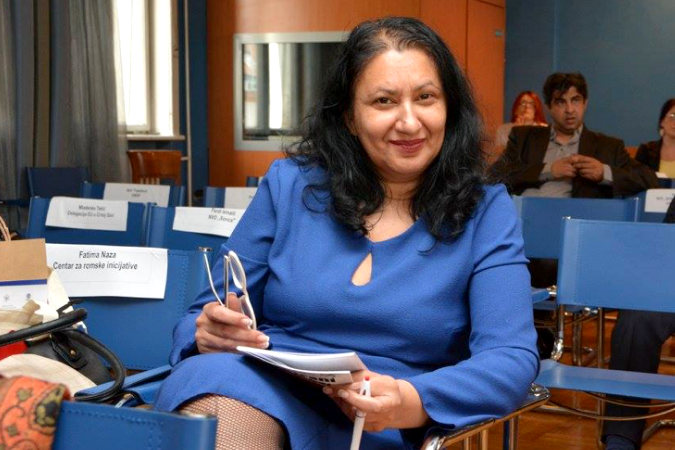Take Five: “Supporting Roma women to claim their rights”
Date:

Slavica Vasić is the chair and one of the founders of Bibija’s Roma Women’s Centre, a civil society organization with over 20 years of work and experience in supporting the empowerment of Roma women in Serbia and beyond. Bibija is currently working under the EU-UN Women Regional Programme on ending violence against women in the Western Balkans and Turkey to strengthen the capacity of Roma women´s organizations to monitor, report on and advocate for the implementation of the Council of Europe Convention on preventing and combating violence against women and domestic violence (Istanbul Convention) and the Convention on the Elimination of All Forms of Discrimination against Women (CEDAW). Ms Vasić spoke to UN Women about her work and the priorities to end violence against Roma women.
What are the main challenges that Roma women and girls are facing today in this region?
Roma women experience multiple forms of discrimination, and discrimination against them is present in all spheres of public and private life, within their own community and within the society in general. They are not adequately involved in public and political life, a small number of Roma girls are educated, there is high percentage of unemployed Roma women, they have a shorter life expectancy and they are exposed to early marriages and domestic violence.
What services are provided to women and girls who experience violence? Are they easy to access?
In practice, a large number of Roma women lack confidence in the system because they feel that they would not receive help or they have already had bad experiences with these institutions, so they decide not to seek help in order to protect themselves against domestic violence and violence against women. As an explanation of why only a small number of women decide to report violence, many women say they receive insufficient assistance from institutions, and they point to the negative experiences of other women. Although they know there are mechanisms for protection against violence available to Roma women, Roma women rarely decide to report violence to the relevant institutions because they get treated differently on the basis of their ethnicity. Their prior bad experiences result in mistrust in institutions.
How are you working within the regional programme to support Roma women and girls?
Our project within the regional programme is focused on uniting the voices of citizens, women, national and local NGOs, experts, human rights defenders, civil society activists and national institutions working on Roma rights and gender issues to end violence against women. The project aims to contribute towards developing measures targeting the multiple and intersecting inequalities and other forms of discrimination and violence facing Roma women.
In your opinion, what are the top priorities in ending violence against Roma women and girls?
On one hand, it is necessary to continue working on raising the awareness of Roma women that violence is not a private matter and informing them of their options in seeking help, support and protection. The next step is empowering Roma women to report violence to the competent authorities, who should then respond in accordance with their responsibilities. The economic empowerment of Roma women is also very important.
In terms of services for survivors of violence against women, what can be improved?
There is a need for continuous training for members of institutions that provide protection against domestic and partner violence on the specific situation of Roma women in the family and in society. Also, it is important that justice is reached in these cases. To achieve this, faster response and better coordination of competent institutions is needed. Institutions also need to be able to support Roma women who are subjected to violence and to facilitate the accommodation of women with children, to assist them in finding jobs or provide them with some form of financial aid, as well as providing them with psycho-social support.